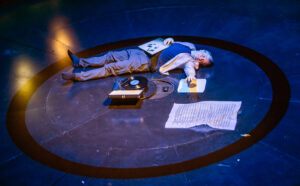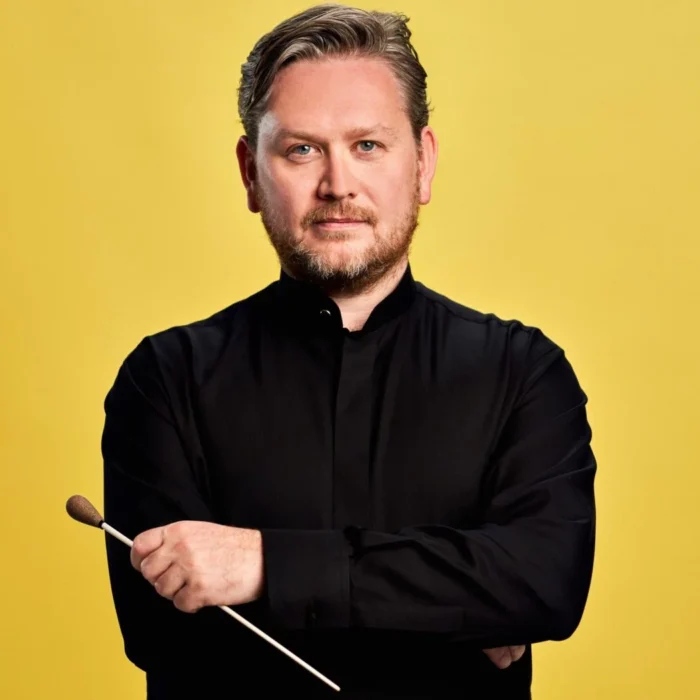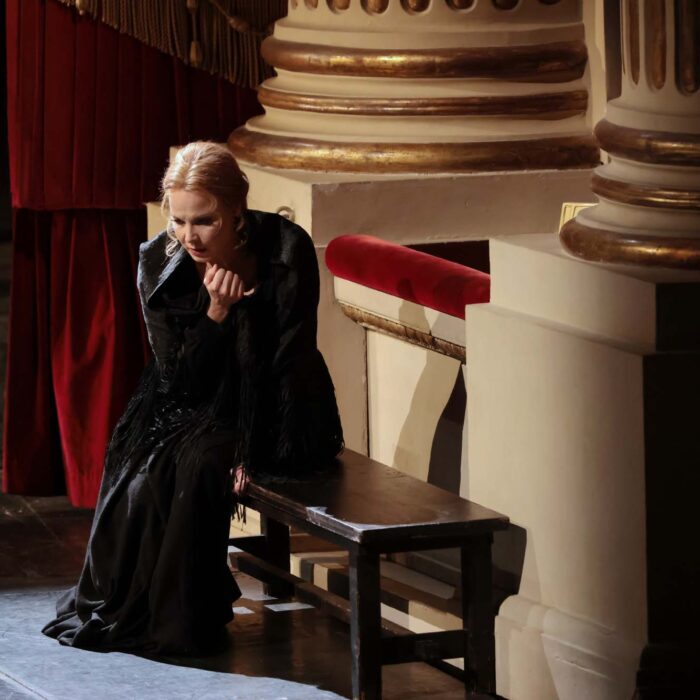
NYU Skirball 2023 Review: Tao of Glass
Phelim McDermott’s homage to Philip Glass and the essence of life
By Jennifer Pyron(Photo Credit: NYU Skirball)
“Tao of Glass,” starring actor and director Phelim McDermott with music by Philip Glass, premiered at NYU’s Skirball Theater this past week. I had the pleasure of attending the show on Friday, March 31st, 2023. Though the performance suffered from a technical malfunction—which I will address later in my article because it affected the performance—it is important for me to begin by saying that I am a dedicated Philip Glass fan and so this review is in honor of his music. His legendary opera “Einstein on the Beach” opened my eyes to opera’s possibilities. He also brought to life the stories of “Akhnaten” and Mahatma Gandhi—in “Satyagraha”—in ways that have forever impacted opera’s history and, ultimately, opera’s audience.
Glass methodically infuses his compositions with empowering and emotional intellect. This is one of his greatest gifts, and one that continues to inspire many to explore his works through to this day. “Tao of Glass” began with McDermott speaking to the audience. He told the story of how he initially entered the realm of Philip Glass through Glass’ 1981 “Glassworks.” The tender, undeniably true, and timelessly relevant childhood story reminded me of how I first discovered Glass. “Glassworks” was where McDermott found the pulse: his gateway drug to Philip Glass, if you will.
“This is the first album of Philip Glass’ music that I bought,” McDermott said. “I thought that I [had] lost this, originally, and [then] I found it in the World War Two Anderson air raid shelter, off in our garden. Some things need protecting” said McDermott as he held the album close to his chest, and the audience laughed.
He proceeded to explain how “Glassworks” became an obsession for him. He would go to his old college library and watch VHS tapes of Philip Glass performing live. At this point in the introduction to “Tao of Glass” he also entertained the audience by imitating Glass playing the piano. His body’s rhythmic movements made an iconic rocking motion that mimed a slow ticking pendulum. His hair fell freely and became its own iconic expression. McDermott was evidently having fun, and the audience wanted to know more.
McDermott talked about how he would lie on the floor of his childhood home and listen to “Glassworks” on repeat. He said it drove his parents crazy. At this point in the performance, McDermott began to incorporate the brilliant puppeteers of Improbable, speaking into their ears about what his parents would say to him, and waiting for the puppets to say it back to him. This slowly but surely began to build them up and bring them to life. Working together, the cast opened the portal into their dreamland.
David Emmings, Janet Etuk, and Sarah Wright worked with McDermott to reimagine his inner-workings upon discovering “Glassworks” and remembering himself as a boy. Between a life-like boy puppet and several breathtaking shadowplay moments, the puppeteers expressed a unique and highly intelligent interpretation that was reminiscent of Improbable’s work in the Met Opera’s “Akhnaten.” I really liked how “Tao of Glass,” for me, became a condensed version of that masterpiece in an intimate and humbling way. I looked around at the audience and there was a childlike wonder in everyone’s eyes. They were entering this dreamland, too.
The story of how Phelim McDermott wanted to make a theater-piece adaptation of Maurice Sendak’s book “Into the Night Kitchen,” with music by Philip Glass, was the next story “Tao of Glass” told. McDermott made audience members laugh through his self-deprecating humor concerning this dream that ‘never happened.’ It was not so much McDermott’s dreams not being realized in the way that he had hoped that left a lasting impression on me, however. More so, it was McDermott’s gift as a director to create an aesthetic overview that had a looking-glass effect of an outsider, pulling them into the realm of Philip Glass’ music.
Phelim McDermott was undeniably in harmony with Philip Glass, because he was driven by his own creative genius. It took a genius to recognize a genius. “Tao of Glass,” at its core, mirrored Glass’ meditative and transformative music. I had to really concentrate to follow the narrative thread of McDermott’s memories, which comprehended the new ideas he introduced concerning ‘deep democracy’ and the story’s essence: ‘the Tao which cannot be said.’
If you are a fan of Philip Glass’ music, this is an absolute must see and must listen experience. I felt like I was witnessing the evolution of Philip Glass the entire time. The musicians included Chris Vatalaro (musical director and percussion), Jack McNeill (clarinet), Laura Lutzke (violin), and Katherine Tinker (piano), and they were absolutely incredible together. The amount of care and thoughtfulness regarding Glass’ compositions were history-making. I felt like I was inside the most satiating musical atmosphere throughout. The ensemble also incorporated moments of experimentation with found objects that added unique textures. The classic Glass harmonies and transitions which were maintained throughout the performance made me melt in awe.
Unfortunately—and this is only in the case of the performance that I attended—towards the end of the show a Steinway Spirio piano, which can record both sound and touch, was put onstage. McDermott was describing the moment when he met with Glass and was asked by him to lie down and pretend to be in a coma. This was to allow for Glass to compose a completely unique-to-McDermott piece that he could use in “Tao of Glass.” After McDermott lay down on the stage and the spotlight centered on the piano, nothing happened. I know there was some technical malfunction going on, but I will say it was heartbreaking that the piano did not play. It really affected me to witness this non-moment, and not just because I was disappointed that there was a malfunction. At first, I thought it was a joke because of how consistent Phelim McDermott had been in his self-deprecating comedy throughout the performance. Slowly it hit me, however, that in spite of all the lead up to this moment, there was nothing that could adequately replace Philip Glass’ presence when his piano did not play. It was like I was experiencing all the five stages of grief: denial, anger, bargaining, depression, and acceptance.
This malfunction, though purely a one-off technical error, made me realize that I am not ready to face the unknown of being without Glass. I take great joy in the knowledge that Philip Glass is alive and well today. “Tao of Glass,” Phelim McDermott’s homage to the living maestro, made me realize this. Glass has instilled in me a very deep sense of hope, and a desire to stay curious, creative, and innovative. These lessons I have learned from Glass, as has McDermott, and they have left an incomparable impression upon my core. Even as I write this article I am laughing and crying at the same time. Laughing at how I will always cherish the joy which Phelim McDermott excited within me in this work, and crying at how mortality is a part of life no matter what does—or does not—happen.
Categories
News


